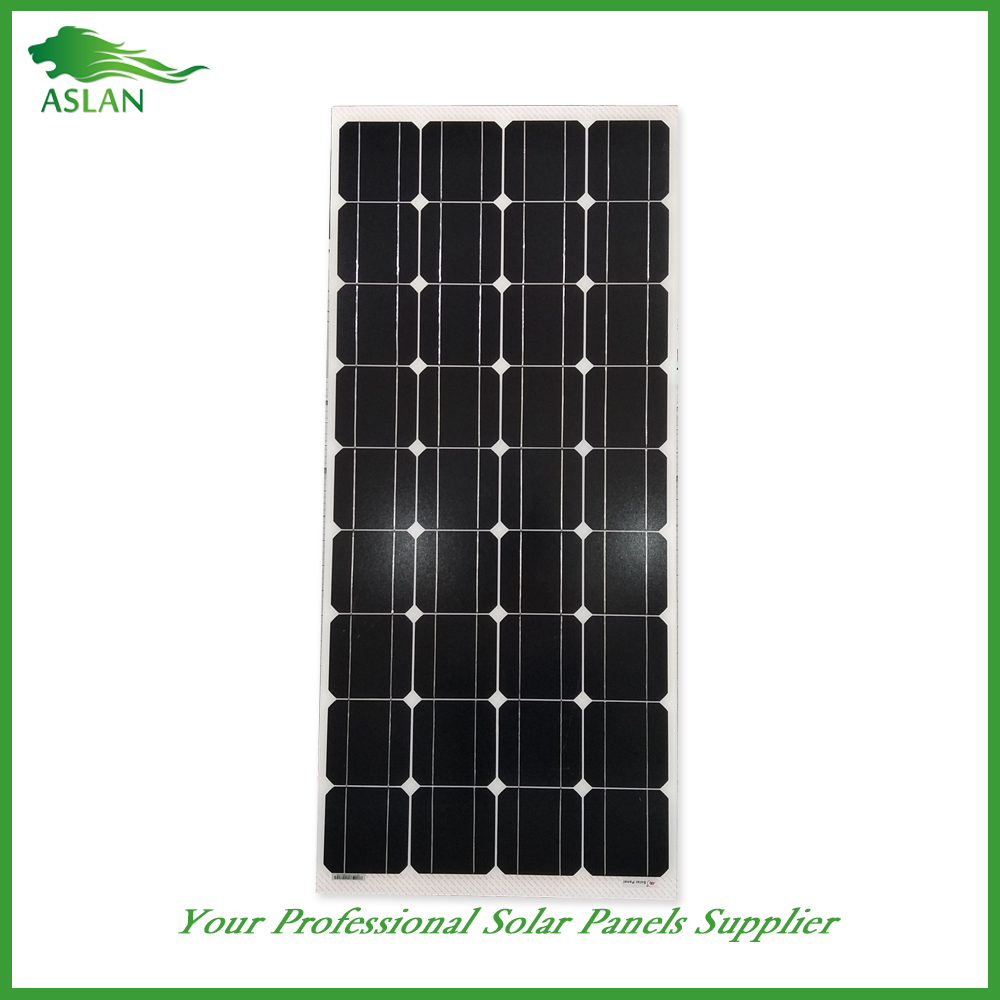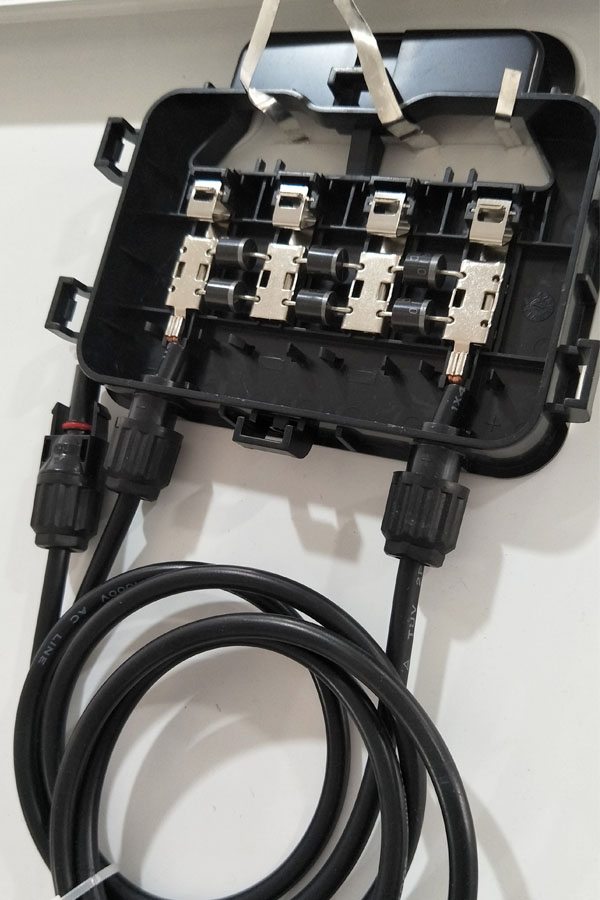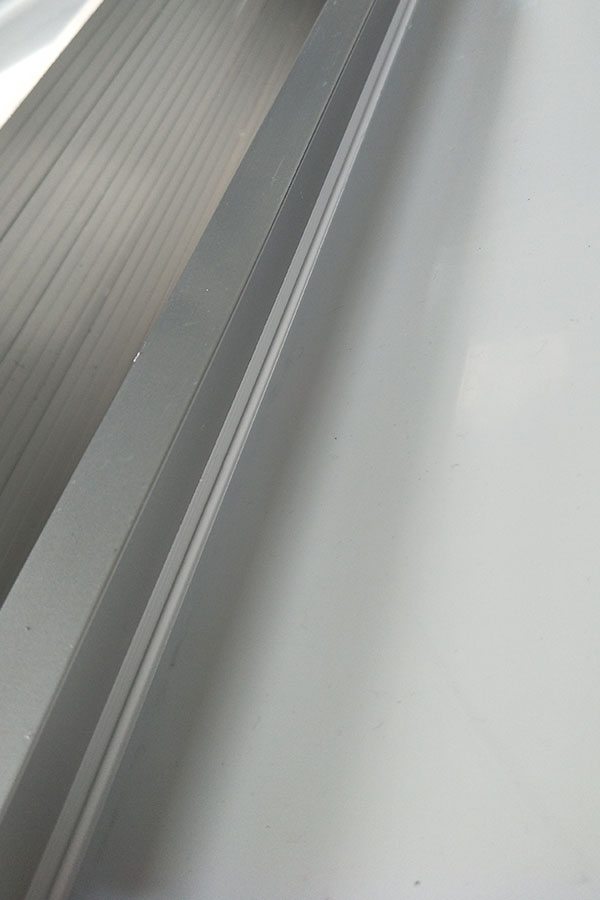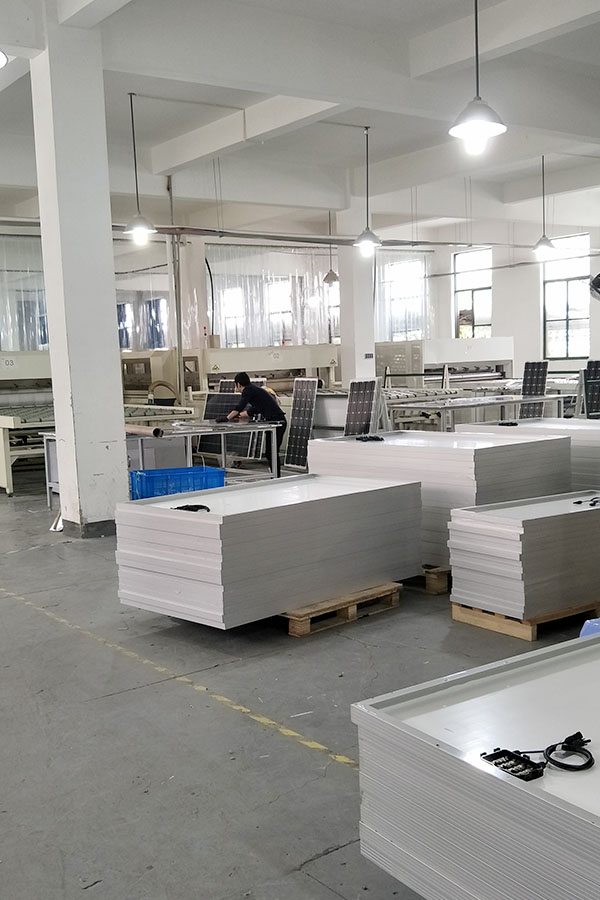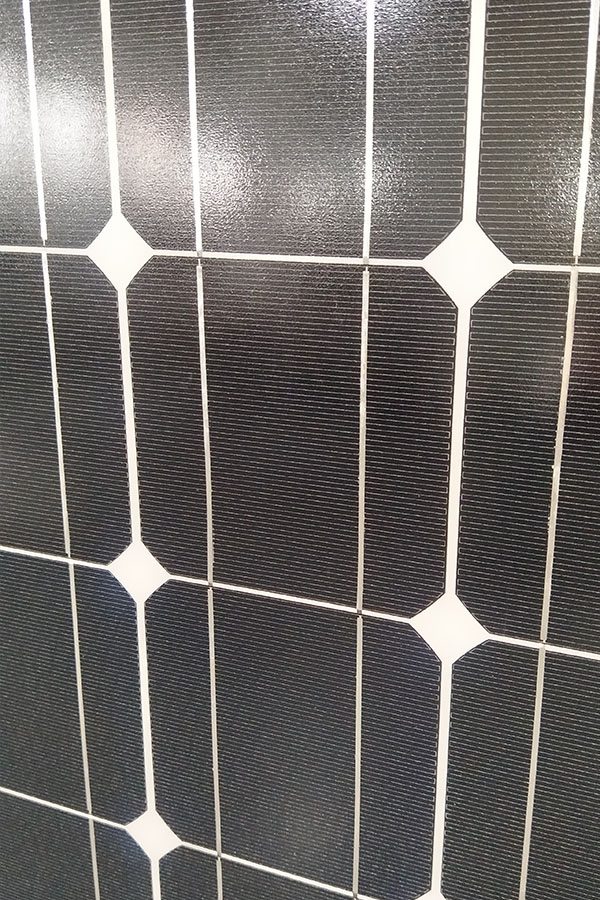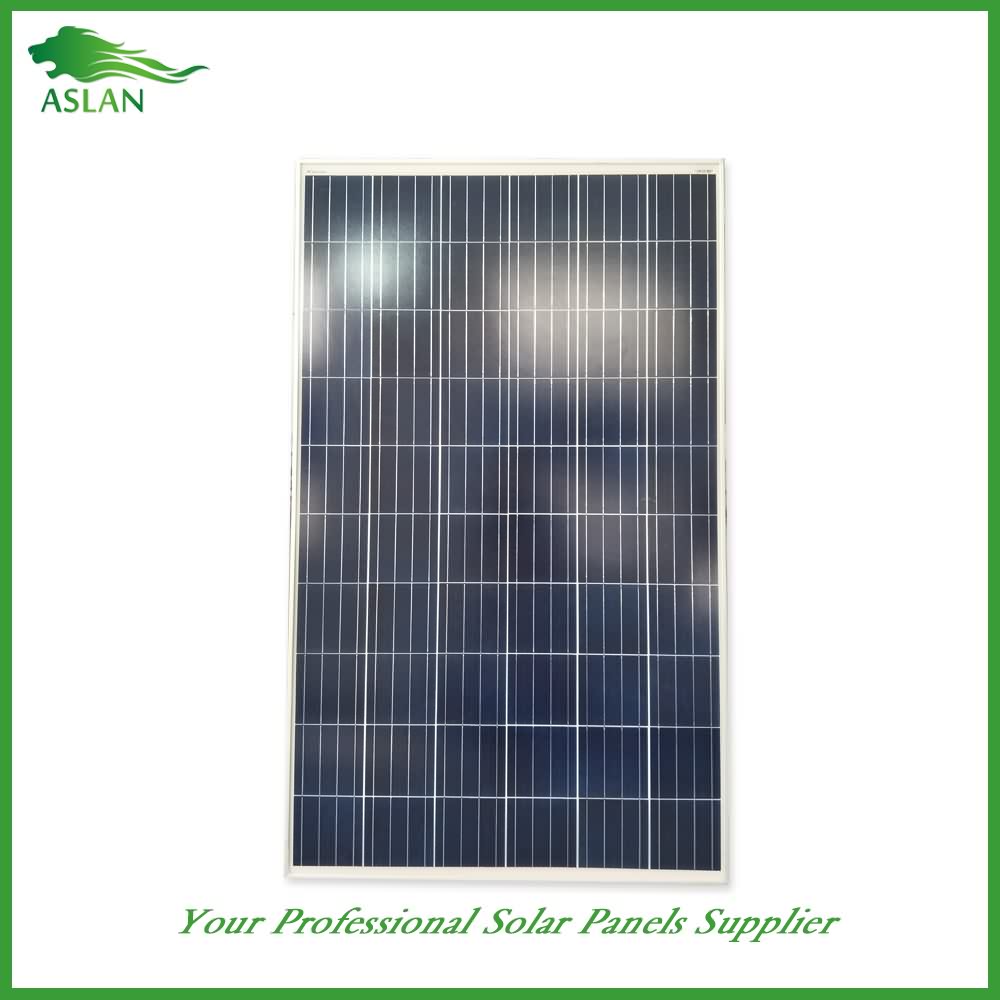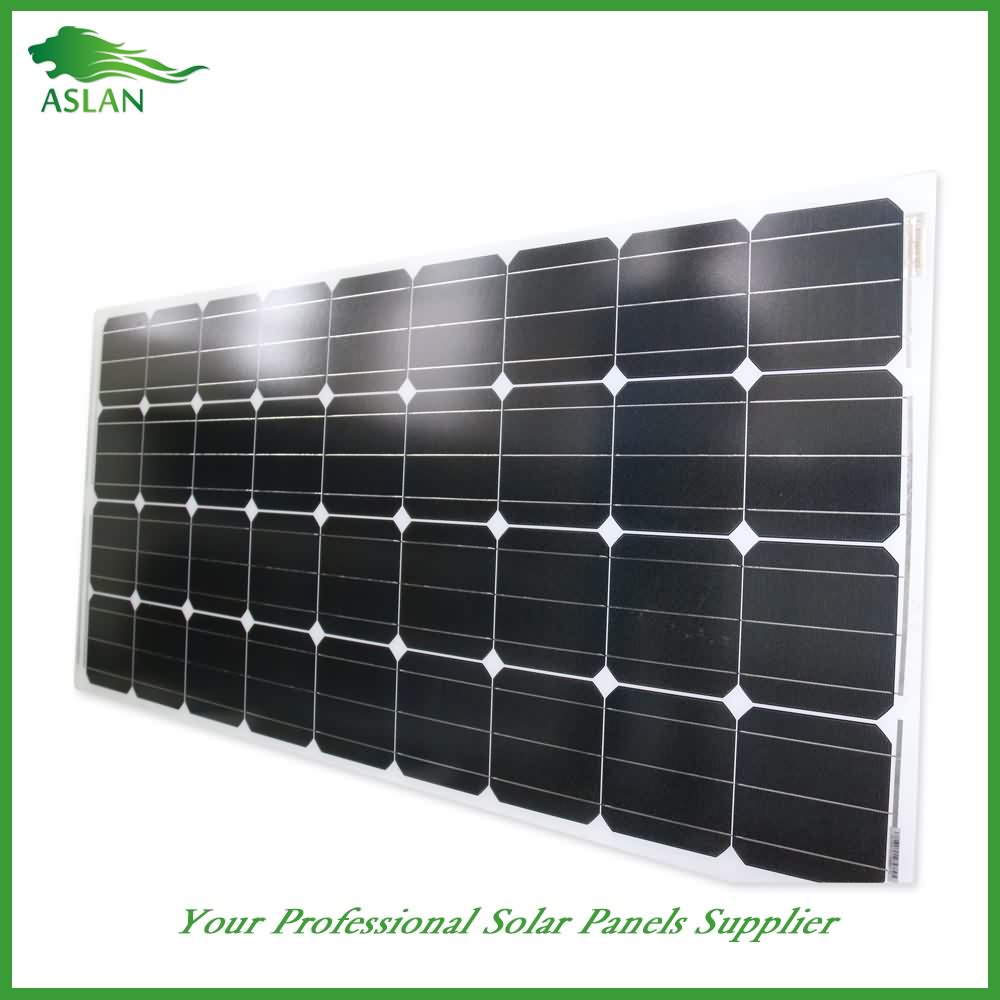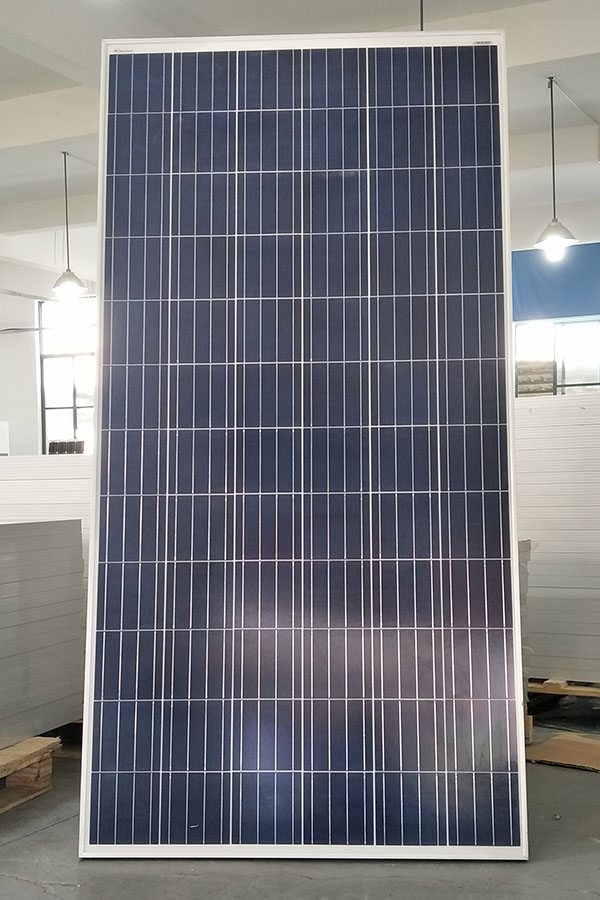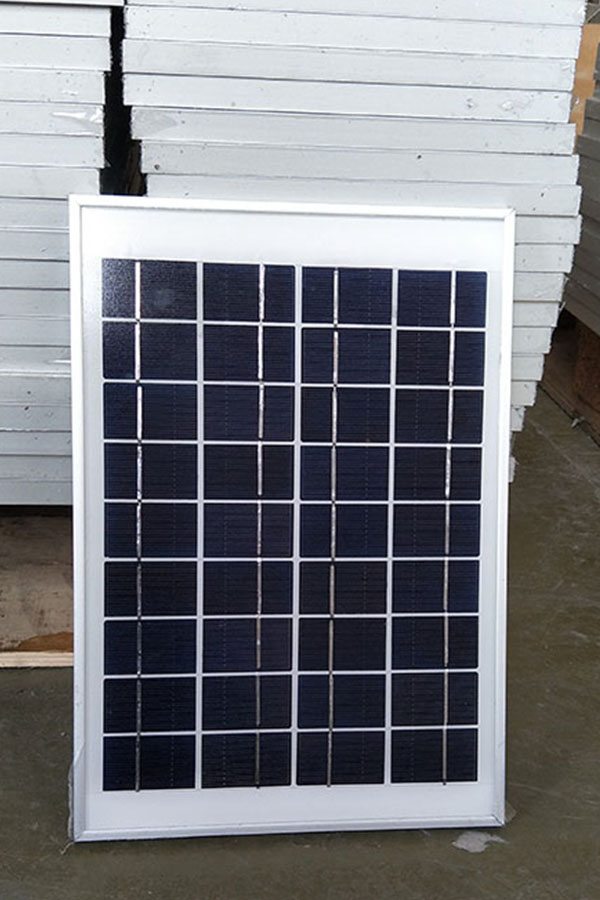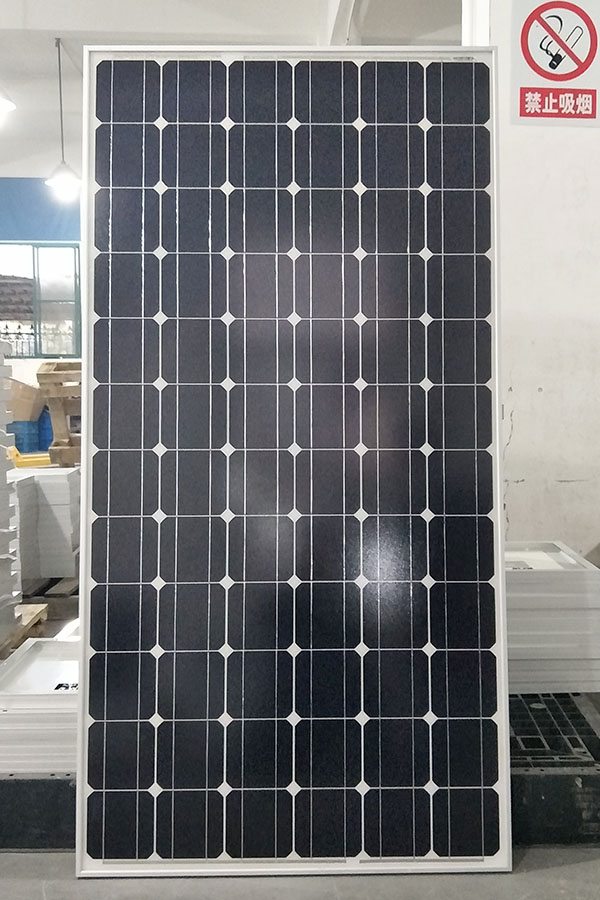Special Design for Mono-Crystalline 150W Solar Panel for US
Short Description:
In the past few years, our company absorbed and digested advanced technologies both at home and abroad. Meanwhile, our company staffs a team of experts devoted to the development of Special Design for Mono-Crystalline 150W Solar Panel for US, Welcome to contact us if you are interested in our product, we will give you a surprice for Qulity and Price.
Mono-Crystalline 150W Solar Panel
Technical parameter
Maximum Power(W) 150W
Optimum Power Voltage(Vmp) 17.92V
Optimum Operating Current(Imp) 7.83A
Open Circuit Voltage(Voc) 21.86V
Short Circuit Current(Isc) 8.59A
Mechanical Characteristics
Cell Type Monocrystalline 156x156mm (6 inch)
No of Cell 36 (4x9pcs)
Dimensions 1485x668x35mm
Weight 11.6KGS
Front Glass 3.2mm,High Transmission, Low Iron,Tempered Glass
Junction box IP65 Rated
Output Cable TUV 1×4.0mm2/UL12AWG,Length:900mm
Temperature and Coefficients
Operating Temperature(°C): -40°C ~ + 85°C
Maximum System Voltage: 600V(UL)/1000V(IEC) DC
Maximum Rated Current Series: 15A
Temperature Coefficients of Pmax: -0.435%
Temperature Coefficients of Voc: -0.35%
Temperature Coefficients of Isc: 0.043%
Nominal Operationg Cell Temperature (NOCT): 47+/-2°C
Materials of solar panel
1).Solar Cell——Mono-crystalline solar cell 156*156mm
2).Front Glass——-3.2mm, high transmission, low iron, tempered glass
3).EVA——-excellent anti-aging EVA
4).TPT——-TPT hot seal made of flame resistance
5).Frame——anodized aluminum profile
6).Junction Box——-IP65 rated, high quality, with diode protection
Superiority: high quality anodized aluminum frame, high efficiency long life, easy installation, strong wind resistance, strong hail resistance.
Features
1. High cell efficiency with quality silicon materials for long term output stability
2. Strictly quality control ensure the stability and reliability, totally 23 QC procedures
3. High transmittance low iron tempered glass with enhanced stiffness and impact resistance
4. Both Polycrystalline and Mono-crystalline
5. Excellent performance in harsh weather
6. Outstanding electrical performance under high temperature and low irradiance
Quality assurance testing
Thermal cycling test
Thermal shock test
Thermal/Freezing and high humidity cycling test
Electrical isolation test
Hail impact test
Mechanical, wind and twist loading test
Salt mist test
Light and water-exposure test
Moist carbon dioxide/sulphur dioxide
This is the fourth video on the solar panel installation. If you missed the first videos, please start here:
Part 1 https://www.youtube.com/watch?v=44ZMOB-ZQwc
The final segment of the solar panel installation on a home in Australia involved tidying up the wires, adding a cigarette lighter socket, testing a fridge on the system and adding a fuse and switch to the solar panel input side of the system.
I drilled a large hole in the side of the box to allow a surge strip to be plugged into the power inverter. Then I added a cigarette lighter socket to the outside of the box and wired that into the power terminals.
The cigarette lighter socket is fused through the same switch the inverter is connected to. There is now a master cutoff switch and fuse for the load devices.
When the cigarette lighter socket was wired up I tested it with a 12 volt utility light and it worked fine. Next I plugged in the 3 way fridge for a while to see if it was working.
The next step was to finish wiring up the fuse and switch on the solar panel input side of the charge controller. I connected the fuse to the charge controller solar panel positive input lead and then connected the other end of the fuse to the cutoff switch. Thee other side of the cutoff switch was connected to the solar panel wire.
Now the solar panels can be disconnected fully from the system with the flip of a switch. This is the best way to set up your system for safety if you want to work on the wiring.
The solar panels should ALWAYS be disconnected from the charge controller first before you begin any work on the system.
Follow The Off Grid Project and get your home off the grid on a budget
http://www.TheOffGridProject.com
Join The Off Grid Project and The Do It Yourself World forum and share your ideas, tips and projects.
http://www.thediyworld.com/forum
The Off Grid Project is presented by The Do It Yourself World.
http://www.TheDIYworld.com
Experiments and projects in off grid living, alternate energy, survival, hiking and more.
Two workers were injured when a factory manufacturing ingots and solar cells at Samajaya Industrial Zone in Kuching, Sarawak, caught fire earlier today.
Liang Yuu, a Chinese national, suffered burns all over the body while a local worker, Qhairul Apdar Mohd Firdaus, was injured trying to escape from the second floor of the factory.
Sarawak Fire and Rescue Operation assistant director, Tiong Lingg Hii said that the department received a call around 7am.
A team of 20 firemen from both Tabuan and Kuching Fire and Rescue Stations with several fire engines were immediately deployed.
However the fire was brought under control by the factory’s rescue team personnel before the firemen arrived.
40 % of the mechanical equipment placed on the top floor was destroyed in the fire.
Both victims were sent to the Sarawak General hospital for treatment.
